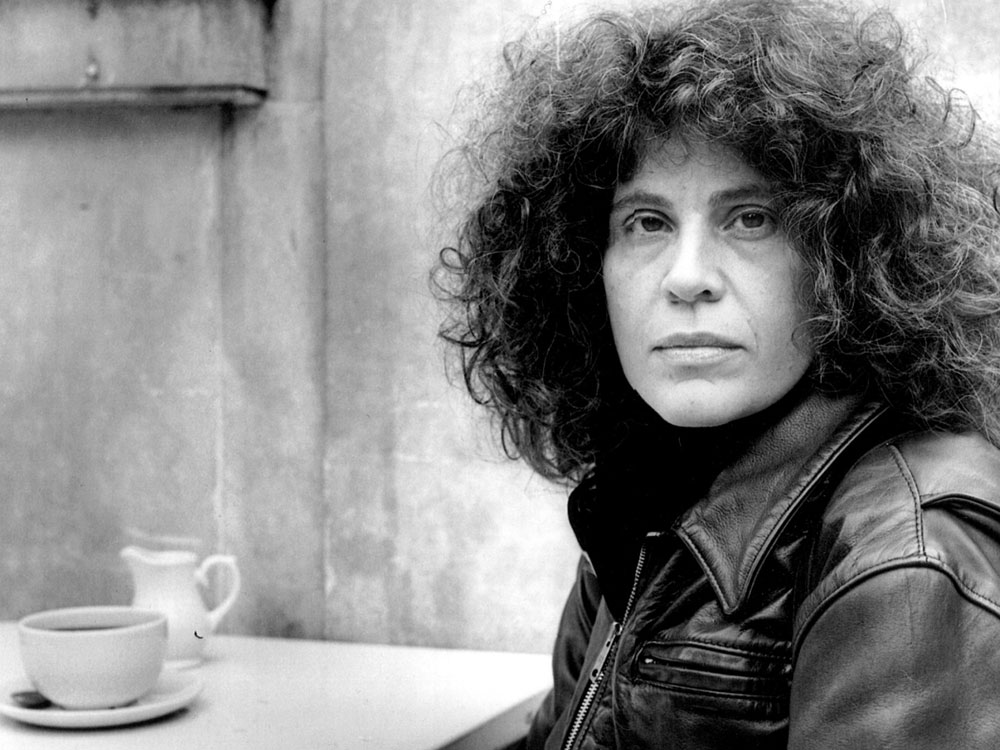- Held
- McClelland & Stewart (2023)
In the last weeks, as war has escalated in Gaza following the Hamas attack in Israel on Oct. 7, artists, writers, film festivals, media publications and cultural organizations have tried to find a way forward in an increasingly brutalized world. No one seems to have an answer.
Held, the new novel from celebrated Toronto poet and novelist Anne Michaels, offers one of the few sane ways to contend with a world that seems intent on ripping itself to pieces. Michaels, who made waves with her 1996 debut novel Fugitive Pieces, poured a decade of work into Held. Its emergence at this moment in time seems exactly right.
Michaels’ work feels like a place to take shelter. It’s not exactly comfort or escape, but something deeper than both of those, more akin to being on a ship on a long journey. You can look back at the landscape from where you came and see it at a distance. Something about this type of remove is useful. It makes sense that the first half-dozen chapters are named for different rivers, as if we were floating by the events depicted, all of them on their way to the open sea.
On a Zoom call from her home in Toronto, Michaels is exactly who you think she might be from reading her work. She is slightly terrifying in the way that ferociously intelligent people can be. But hers is an intellect knit with compassion and humour. In reading Held, I found myself thinking about French film essayist Chris Marker, in particular his work Le fond de l'air est rouge, which charts the rise, fall and resurgence of revolutionary movements throughout the past century. Marker described these great shifts as “ingenuity of history, which always seems to have more imagination than we do.”
There is a similar heft in Michaels’ writing, coupled with a profound gentleness of spirit. As much as Held is about the human propensity for conflict, it is even more about love. The book explores love between couples, between parents and children and between people separated from each other, longing for reunion.
Inside the ‘war to end all wars’
Held begins in 1917 in the trench combat of the First World War, near the river Escaut in Cambrai, France. It was said to be the war to end all wars. But of course, it wasn’t. The fact that atrocity didn’t stop there but kicked off more than a century of ongoing conflict feels akin to this moment in a way I can’t quite describe other than by saying this: It’s still happening. It never stopped.
Lying in the mud next to another possibly dead or dying soldier, an English infantryman named John is moving backwards in time. From the mud and filthy water of the battlefield, he travels to the days and nights spent with his wife, Helena. In the process, small details of intimacy embroider themselves into your mind’s eye, from their chance encounter at a pub near a train station to their wedding night in a small room above that same pub. The details often take the form of everyday objects imbued with the form and essence of the person who once lived inside them: a tissue-thin nightgown, a coat with a velvet collar, a perfumed scarf.
As Michaels explains the current moment in time in the context of the novel, “Constantly through all of the writing, I’m thinking, what do we need now?” The answer is connection. In this fashion, art can do something that nothing else can: it offers a bigger, longer and yet more immediate picture.
As Michaels puts it: “The impossibility of engaging with the current moment and present day, we can’t get to the present moment, there are too many defences in the way of truly engaging with what’s happening now.” Art offers not just a way in but also a means to order, to make sense of, to gain a toehold on the cliff face that is the present day.
Michaels, like Chris Marker, looks to history to offer something more important than analysis. “It’s another way of seeing,” she offers.
As a poet, Michaels is someone who understands the precision of language. She says that writing about the previous century could have been a 400-page epic. Even in this kind of expanse, she is clear that no word can be wasted. At 220 pages, Held contains a keenness of focus, like whetting a blade to a papery edge. Michaels explains this kind of winnowing down is a form of respect to the reader.
In some ways, Held is not an easy book to describe. The long process of distillation, of bringing things down to their very essence, means that there are places of dark matter: the stuff between the stuff. In the process of what to leave in, what to take out, the discipline of poetry is critical. “Precision” is a word that the author often uses. But creating a sense of expansiveness, bringing air into a work so that it breathes, is also a key part of her work.
In this aspect, the first sentence and the last sentence are important, but the book is structured so that it precludes the usual gallop through a narrative. Rather, it is a series of intensities more akin to poetry. As a reader, I had to take time to let each successive chapter settle inside my head before I could move on to the next.
Writing as pattern making
The patterns of families, of larger social histories and smaller intimacies, leave a certain amount of space akin to knitted sweaters, where the holes are as much a part of the garment as the wool itself. In one of the book’s earlier chapters, Michaels writes about the wives of English fishermen knitting gansey sweaters. The knitters worked with specific patterns and added purposeful imperfections into the sleeves of the garments so that if a man was lost at sea, the pattern of his clothing could help identify him and return him to his family.
This kind of pattern making refers equally well to the book itself, as the characters in successive chapters are revealed in their connections to each other. John and Helena. Peter and Anna. Mara and Alan. Sometimes this connective tissue is oblique, and other times immediate.
These relationships exist through time, a continuum of familial patterns, the epigenetics of trauma and love passed on, like a pattern knit into a garment, the better to identify people with. Most often, it is parents, children, grandchildren, but other people come into the narrative, like Madam Marie Curie and her husband. Or naturalist Charles Darwin walking in circles on his thinking path.
In the opening chapters, it is John and his wife, Helena. Returned from the war, John takes the portraits of wounded soldiers and their families, helped along by his shifty assistant. Helena, an artist, creates her own work, painting scenes designed to delight and comfort in their new home. When the ghosts of family members begin to appear in John’s photographs, he is reluctant to even show people at first.
Image makers, painters and photographers, but also people who make things by hand, figure large in Michaels’ novel. In another chapter, it is Peter, a Marxist milliner who demonstrates the ongoing work of care and tenderness by repairing the silk lining of a wool cap. Peter’s daughter Mara, like her mother before her, is a doctor drawn to the most brutal and desperate places in the world. It is her work to knit people back together when they have suffered catastrophic violence.
Bodies also figure large in Held, both the pleasure and pain of them. Some of the most beautiful passages offer up the pleasures of food, of touch, of seeing and looking at everything that the physical world has to offer. White cliffs, birds flying, snow falling. Given Michaels’ dedication to capturing the small, intimate details of personal artifacts as well as the greater expanse of landscape, I’m curious to know how she herself escapes the dominance of the verbal brain. “I draw, listen to music, go for walks.”
We are, after all, embodied beings, taking in the world through our fleshy reality. But there are other things at work in the world beyond the blunt, bare facts of life. Science leaves out the ancient relationship that humans have long had with the invisible. Things that cannot be proven but nevertheless persist, like ghosts.
‘How can we conflate invisibility with inexistence?’
In the novel, John’s photographs of the dead and their continued devotion for the living manifest in images. Michaels explains that the elevation of science and its handmaiden technology has taken something precious away, namely this deep affinity for the mystery of the world.
In Held, Michaels writes of this curious dichotomy: “How can we doubt the existence of what is invisible? How can we conflate invisibility with inexistence?”
Technology, especially algorithms, herd people in certain directions without their full understanding or even recognition of what is taking place. I tell her that for the first time, I had to turn off the news because the cognitive dissonance was simply too great to take. “That’s an act of sanity,” she says. But was she tempted, as the world continues to develop in ever stranger directions, to react in the form of her writing? “Well, I think this book is very much about the current moment,” she replies. It is also about the future, or “how connected we are to our lives, to what happens in the future, of making the future, how we love and respect the future.”
After so much time and care, is releasing a new book into the wider and infinitely more chaotic world akin to letting a child go off and lead their own life? “You hope, you made this thing, and you hope that it will endure, it will find its reader,” says Michaels. “I asked myself, how small a voice that could be heard in the world? I made it the best I can, is that enough?”
In a time when the world feels especially dark, artists take on a kind of responsibility for the people they reach. As Michaels says, “The sense of being held was very important, that consoling, that no love is wasted.”
In the novel, an important question is posed by Mara to her husband, Alan. “Do you think it’s possible for good to survive long enough, to outlast, to wait, to endure, while evil consumes itself?” When he sees that she needs a different answer than the one he gives, he changes his response. It is a fundamental act of compassion and hope.
At a certain point in talking to Michaels, we both fall silent and then start to laugh. I’m not sure why this moment struck me the way it did, but it did, so I’m sharing it here. A small bit of connection, in this strange time.
“History chooses moments,” Michaels says. It feels as though we are poised on one, even now, as the patterns of the present are being passed on, knitted like imperfect stitches into the genetic makeup of the people to come.
At the end of reading Held, I just wanted to start all over again, at the beginning, to let words settle on my tongue like melting sweetness. ![]()
Read more: Books, Rights + Justice

















Tyee Commenting Guidelines
Comments that violate guidelines risk being deleted, and violations may result in a temporary or permanent user ban. Maintain the spirit of good conversation to stay in the discussion and be patient with moderators. Comments are reviewed regularly but not in real time.
Do:
Do not: